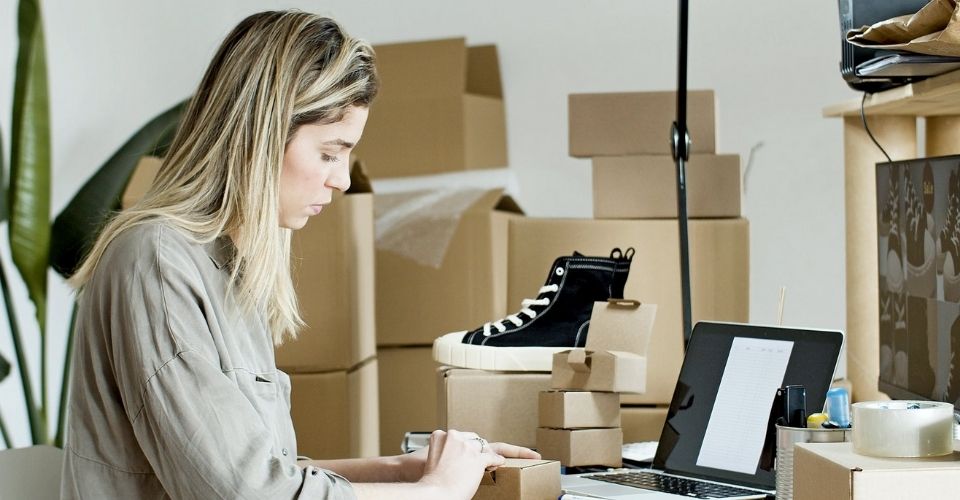In the first few months of 2020, the way people buy goods and services has changed significantly. Stay-at-home orders have left brick-and-mortar stores struggling, with more customers avoiding crowds and staying home. If COVID-19 has taught retailers something, it’s the value of diversifying into e-commerce and ensuring that their online presence is doing everything possible to attract customers. As a leading point-of-sale provider that has supported many online businesses, here are our thoughts for retailers to move the brick-and-mortar store to an online platform.

Overview
Why Is It Better For Brick-and-mortar Store To Move To Online Platform?
It enables you to remain competitive
Although many consumers would still choose to shop in person, there’s no denying that e-commerce is gaining traction. Although e-commerce is new, in 2019, e-commerce sales already accounted for 14.1% of all retail sales worldwide.
Therefore, why not take your company online to take advantage of this changing consumer preference? It will not only assist you in expanding your store’s scope to customers outside of your immediate area, but also in remaining competitive in today’s market.
An online presence will help you reach a wider audience
As previously said, part of being competitive entails going where the customers are online. If you move your brick-and-mortar store to an online platform, you can reach out to new customers and markets all over the world.
Cross-border e-commerce is a hot topic right now, with no signs of slowing down. Merchants that expand online will take advantage of the most active countries for e-commerce, such as Brazil, China, and Japan, with global online revenues forecasted to top $5 trillion at the end of 2021.
The online store will bring you closer to customers
Customers tend to get what they want as soon as possible. Whether due to lockdowns or merely having standard operating hours, it can be almost impossible for brick-and-mortar retailers to meet such demands. However, providing an e-commerce aspect to your company allows your customers to shop for your goods and services whenever they want, from the comfort of their own homes.

When it comes to waiting for answers, it can be hard for customers to be patient. You can set up chatbots, 24/7 customer support lines, and other ways for customers to contact you during non-traditional business hours.
►►►► Please visit our products: digital banking, situation analysis, Shopify markets, Vietnam Photography Tour, Photography Tour Guide Viet Nam, supply chain operations management, fintech ai, Multi Store POS, Woocommerce POS, Mobile POS, White label POS, POS Reseller, Beauty Supply Store POS, Retail POS and Vape shop POS
Going online saves money
Every businessperson wishes to make a profit. However, if you have many fixed costs, such as buying and storing goods, paying rent/utilities, and buying office supplies/store fixtures, it can be difficult.
However, when you move your brick-and-mortar store to an online platform, you can cut down a lot of these costs. Some larger retailers may also run their businesses from their homes, using drop shippers to sell a diverse selection of goods, without investing in costly inventory that must be processed in and delivered from a warehouse.

Conclusion: Balance Between Your Offline And Online Places
Everything has its pros and cons. While e-commerce offers many opportunities for brick-and-mortar stores, it also has some drawbacks. E-commerce is becoming more competitive than ever, which can easily be counter-productive if your business is late in updating the latest trends. For example, because business activities are virtual, everything can be out of control if you still follow traditional ways of management.
Moreover, if you plan to operate your business online only, it can negatively affect your current sales from physical stores, as well as some loyal customers who don’t closely follow the online platforms.
For these reasons, the process of moving online should be assisted with careful planning and automation to minimize any future mistakes. Businesses are now using a point-of-sale (POS) system to balance between the physical and online stores, as well as monitor them at the same time in one place. If you plan to move your brick-and-mortar store to an online platform, we hope this advice might be helpful for you.
ConnectPOS is a point-of-sale provider that helps many retailers to manage their online and offline platforms with real-time synchronization. Contact us if you have any questions
